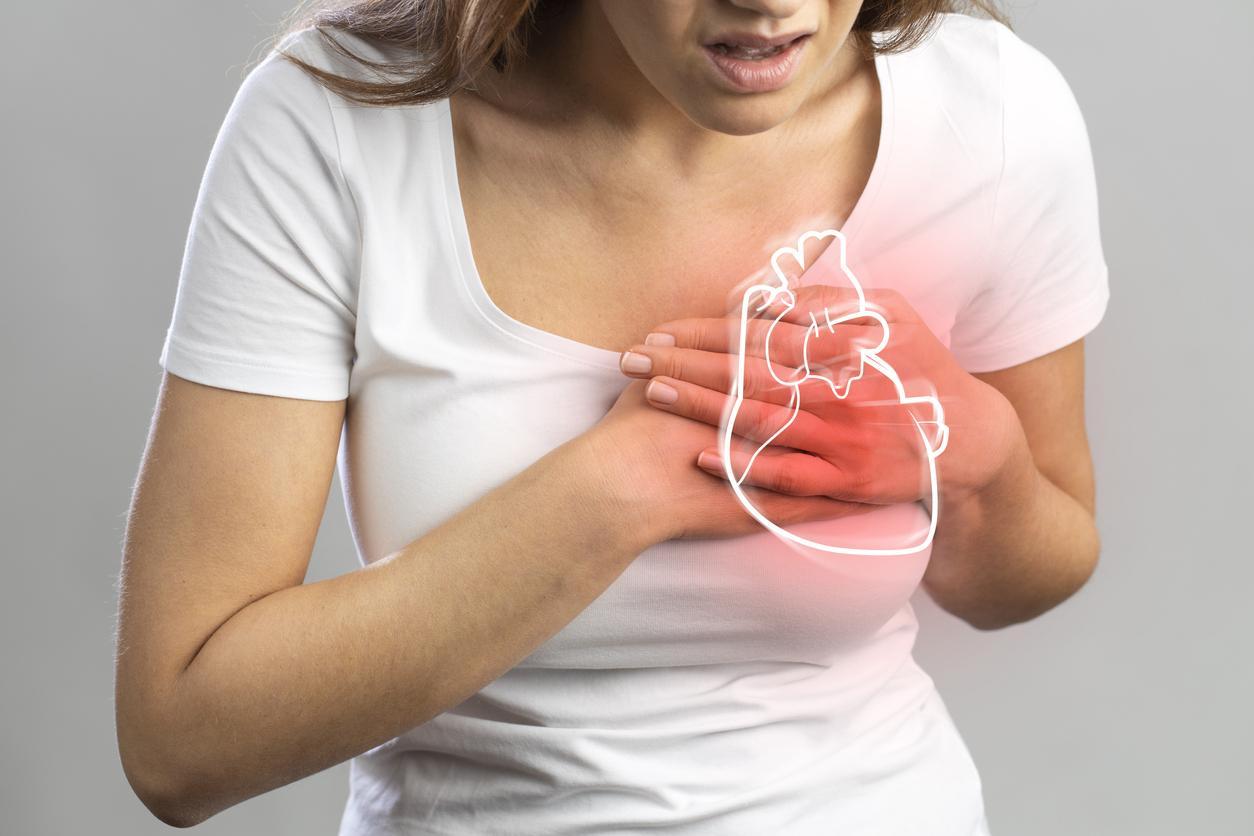Having a heart attack greatly increases your risk of having other health problems.

- In France, the survival rate after a heart attack is around 10%.
- Survivors are more likely to develop health problems later.
- For example, 29.6% of people who had a heart attack developed heart failure within nine years of their attack, compared to 9.8% of those who never had one.
A new study shows that having a heart attack significantly increases the risk of developing other health problems later in life.
To reach this conclusion, researchers from the University of Leeds analyzed and monitored more than 145 million medical records over a period of nine years.
Heart failure, stroke… Heart attack increases the risk
Bottom line: Heart failure, atrial fibrillation, stroke, arterial disease, severe bleeding, kidney failure, type 2 diabetes and depression were all more common in people who had a heart attack than in those who had never suffered from it.
For example, 29.6% of people who had a heart attack developed heart failure within nine years of their attack, compared to 9.8% of those who never had one. The same applies to renal failure (27.2% VS 19.8%) and atrial fibrillation (22.3% VS 16.8%).
These associations were not observed for dementia risk and cancer risk.
The study also showed that people from lower socioeconomic backgrounds were more likely to die or develop serious long-term health problems following a heart attack.
“Our research indicates that these individuals could benefit from additional support and monitoring to reduce their risk of developing other health problems, including heart failure and atrial fibrillation,” estimate the authors of the study.
“As survival rates after heart attacks improve, it is critical to understand their long-term impacts on physical and mental health,” they add.

The survival rate after a heart attack is around 10%.
In France, the survival rate after a heart attack is around 10%. In total, there are around 40,000 sudden deaths in our country per year, three-quarters of which are due to heart attacks.
During a heart attack, the person suddenly feels chest pain which appears at rest or during exercise:
– it originates at the back of the sternum and acts like a vice;
– it is intense, in bars and “tight” chest strongly;
– it can extend to the jaws, the left arm (or both arms) and the back;
– it lasts ;
– it does not give in spontaneously or when taking trinitrin;
– it can be accompanied by paleness, discomfort, sweating, shortness of breath, nausea, belching and anxiety.
A heart attack is a life-threatening emergency. If you have symptoms, do not hesitate to call 15 or 112.















